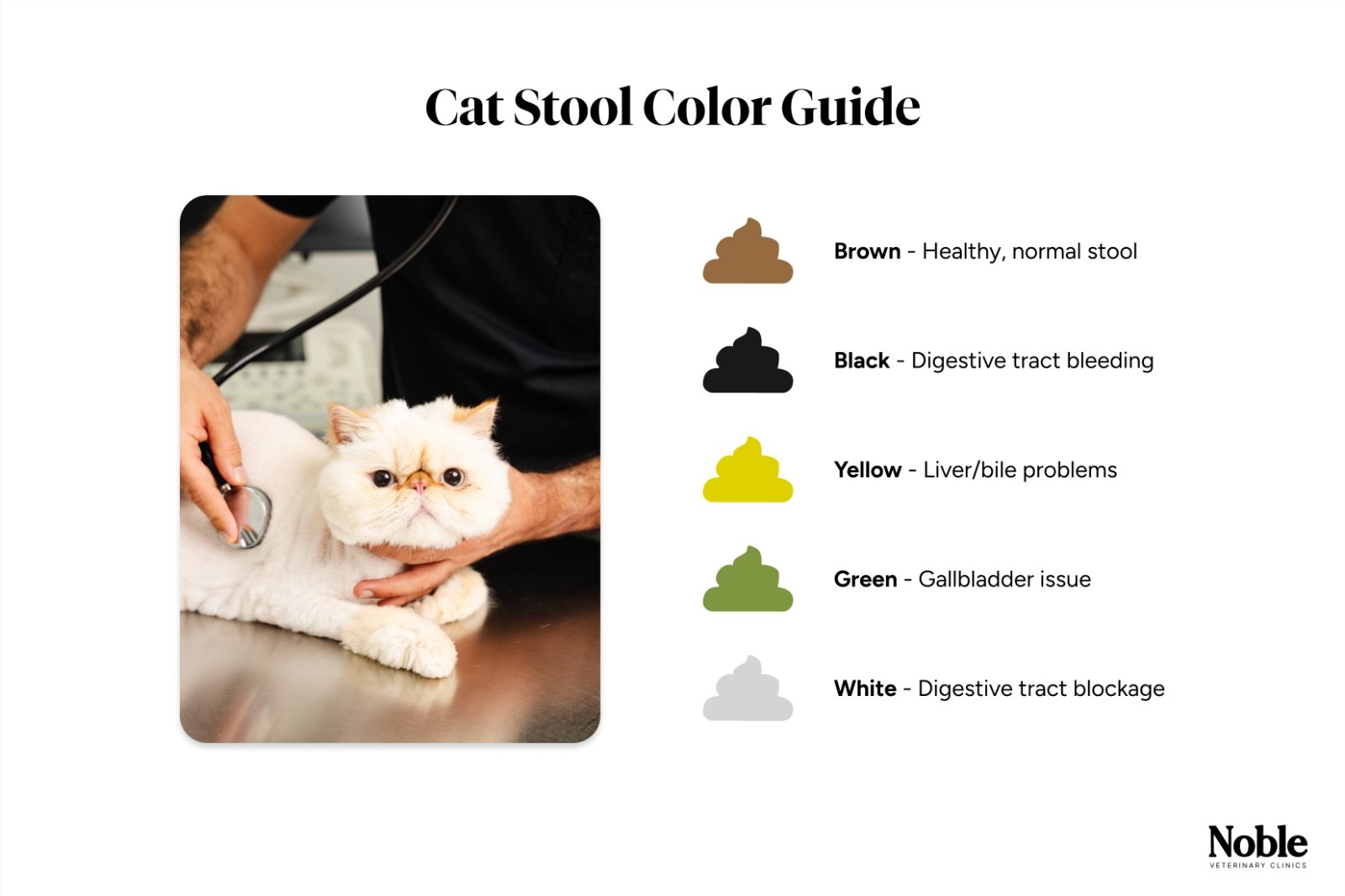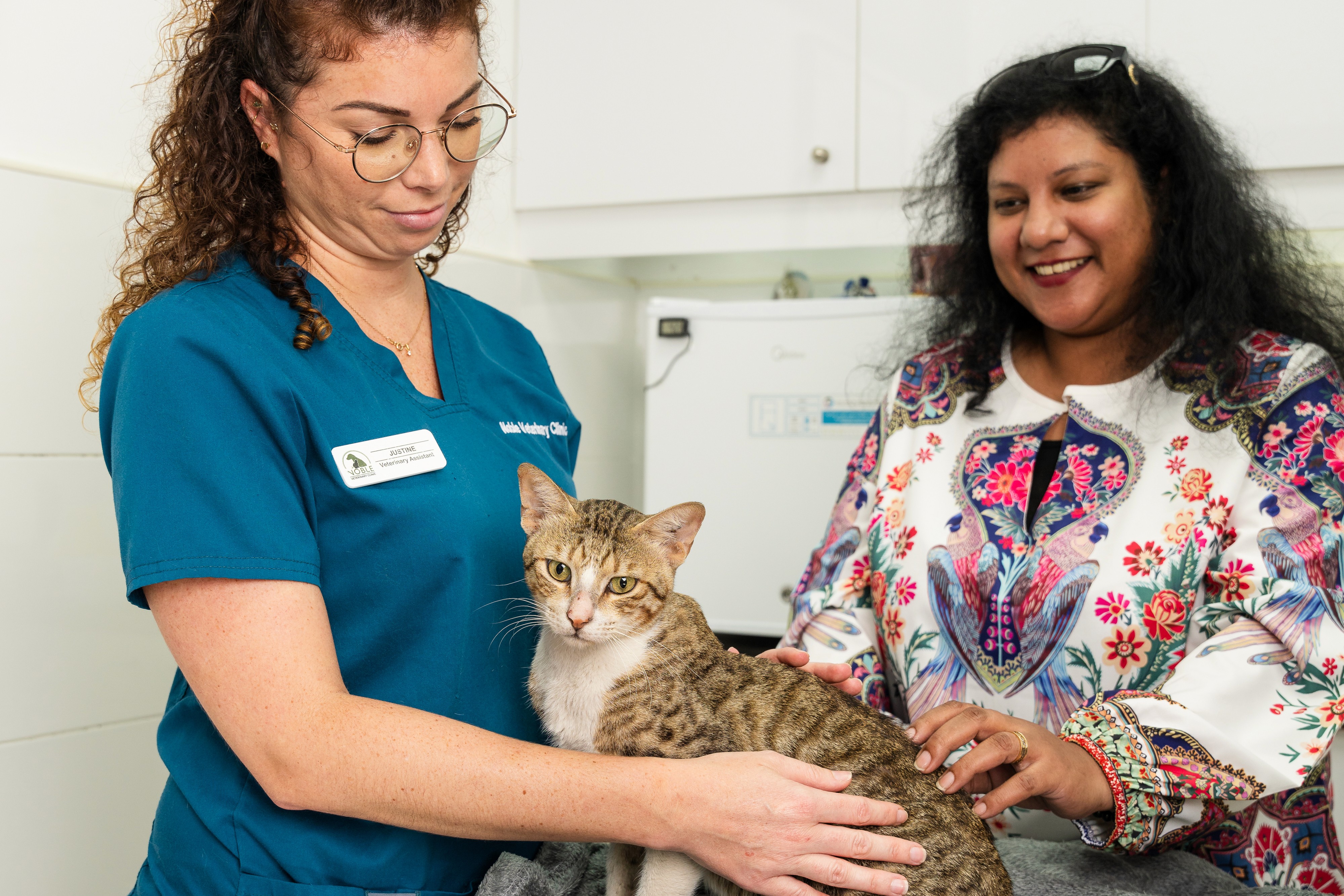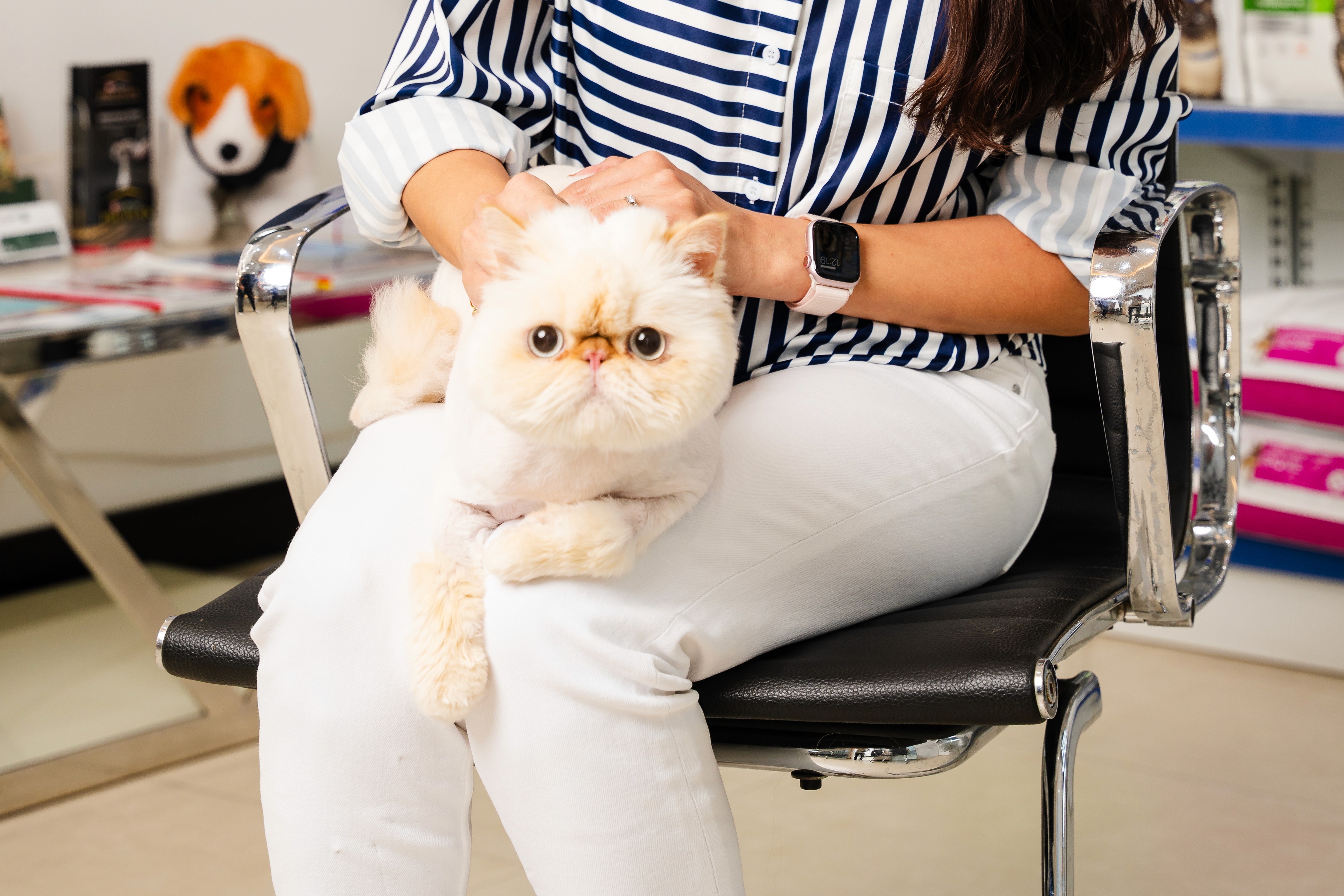23/12/2024
Cleaning your cat’s litter box every day is one of your responsibilities as a cat owner. You must always know what your healthy cat’s stool should look like. If it appears to be different from usual, your cat could have a health problem.
Usually, cats with very dry and hard stool may be dehydrated and can easily be treated. However, cat diarrhea is quite different. This symptom can be a sign of many different illnesses, so you must take your cat to the vet as soon as possible.
A professional cat vet will be able to pinpoint the reason why your cat is experiencing diarrhea. As a cat owner, it’s important that you know all about your cat’s stool–its signs, causes, treatment, and prevention. In this way, you’ll have an idea whether your cat’s condition requires emergency vets or not.
Signs Your Cat Has Diarrhea
If you’re having a difficult time determining if your cat has bowel issues, we listed the common symptoms of cat diarrhea that you must watch out for.
Change in Stool Appearance
The first sign of cat diarrhea is a change in the pet’s stool appearance. A healthy cat will have a firm, brown stool. It should be firm enough to hold shape but not too hard or dry.
When your cat’s stool becomes watery or loose, it’s a sign that it has diarrhea. The color of your cat’s stool also says a lot about its health and current health condition.

Brown – This is a normal and healthy poop color.
Black – It can be a sign of bleeding in the digestive tract.
Yellow – It’s a symptom of liver or bile problems.
Green – This color might indicate a gallbladder issue.
White – This is an unnatural stool color and could mean a digestive tract blockage.
Now, if your cat’s stool is bright or dark red, you must take your pet to the vet immediately, as it could be that your cat is actively bleeding internally and needs urgent care. In many cases, the bleeding might not be too serious and can be treated easily.
Regardless of the reason, when your pet’s poop appearance becomes different than usual, you must take it to the vet as soon as possible.
Increased Bowel Movements
If you notice your cat taking too many trips to the litter box, it could be another sign of diarrhea. A healthy cat will defecate once or twice a day. More than that can be a symptom of an illness.
Before taking your cat to the vet, it may be helpful to note down the number of times it defecates in a day. Your vet will be able to use this information during the health consultation.
Accidents Outside the Litter Box
Even well-trained cats can fall victim to diarrhea, and accidents outside of a litter box can happen while they’re dealing with this issue.
If you notice wet stool around your house, even if your cat usually goes in the litter box, it might be a sign of gastrointestinal distress.
Other Symptoms to Watch For
Apart from the changes in stool appearance and defecation behavior, you must keep an eye out for other signs.
Weakness or lethargy
Change in appetite
Dry gums and sunken eyes
Sudden weight loss
If you notice any of these symptoms in your cat, you should seek urgent veterinary care to be diagnosed and treated immediately.
Common Causes of Cat Diarrhea
There are a variety of reasons why your cat may be experiencing diarrhea. Most of these are not too serious and may go away on their own. However, cat diarrhea can also be caused by fatal diseases that may need emergency vet care.
Dietary Problems
The most common reason for cat diarrhea is dietary problems. Cats have sensitive stomachs, and the slightest change in their food and eating schedule can easily trigger diarrhea.
Food intolerance or allergies can also trigger cat diarrhea. Try to remember if you’ve given your cat any food with dairy or certain meats like chicken or fish. These are common food allergens in cats.
Other dietary issues that may cause cat diarrhea are spoiled food and overeating. Try to check whether your cat has been going through your garbage bin or if your cat has been eating too much than it can handle.
Infections
Bacteria and viruses that cause infections in your cat may also be the reason for your pet’s diarrhea. Some bacteria that cause diarrhea include salmonella and E.coli. As for viruses, one of the most dangerous infections is parvovirus or feline panleukopenia.
If a bacterial or viral infection causes your cat’s diarrhea, you must take it to the vet immediately, especially since it could be feline parvo, which can be fatal.
Parasites
Internal and intestinal parasites are one of the most common causes of diarrhea in cats. Parasites such as hookworms, roundworms, and tapeworms are among the major culprits that cause cat diarrhea.
If your cat has parasites, your vet will administer treatments and medications to kill the parasites before they can deal any more damage to your cat’s body.
Toxins and Poison
Lots of food items are toxic to cats and should never be eaten. These include chocolate, garlic, onions, and alcohol. If your cat has ingested these toxins, diarrhea can appear as one of the symptoms, as its body is trying to expel these toxic foods.
Aside from food, many household chemicals such as cleaning products, pesticides, and medicines can also cause irritation to your cat’s gastrointestinal system, making them have diarrhea in the process.
Stress and Anxiety
Cats are super sensitive creatures, and their mental health is very important. If they experience changes in a routine or a diet plan, they can sometimes fall apart, needing a lot of time to recuperate.
During this process, your cat will be visibly troubled, with diarrhea due to the disturbed digestive system.
Chronic Diseases
There are chronic health issues in cats that have diarrhea as a symptom. One of these is IBD, or inflammatory bowel disease, a long-term inflammation of the digestive tract.
Other serious health conditions include hyperthyroidism and liver or pancreatic disease. These diseases can affect a cat’s metabolism, leading to digestion problems.
Cat Diarrhea Diagnostic Methods
Once you bring your pet to the pet clinic, the vet will conduct diagnostic techniques to determine the cause of your cat’s diarrhea. Here are some of the common ways vets diagnose cat diarrhea causes.
Fecal Examination – This method can detect parasites or bacterial infections.
Blood Tests – This method checks for infections, systematic diseases, or organ failures.
Diagnostic Imaging – X-rays and ultrasounds detect tumors, obstructions, or any issues in the GI tract.
Dietary Trials – This technique determines if your cat has food intolerances or allergies.
Other tests can be done by the vet, especially if there’s a hint that it could be a chronic disease. You and your cat must be ready in case the vet would require additional testing.
Treatment Options for Cat Diarrhea

Depending on the cause of your cat’s diarrhea, the vet may prescribe medications, treatments, or various approaches that can help eliminate this bowel issue in your cat.
If food sensitivities or allergies cause your cat’s diarrhea, your vet may recommend a bland diet in the meantime. This may help soothe your cat’s digestive system. Your vet may also prescribe probiotics to help your cat’s gut health and recovery.
Medications can also be prescribed by your vet. There are anti-diarrhea medicines to help manage the symptoms. If it’s caused by bacterial infections, antibiotics may be prescribed. Cat deworming may be needed for parasite infestations.
If your cat’s diarrhea is a sign of feline parvovirus, your pet may need to be hospitalized and given intensive medical care. Parvo in cats has no cure as of the moment, so vets try to manage the symptoms until your cat gets better using IV fluids, antibiotics, and other treatment methods.
Preventing Cat Diarrhea
Preventing cat diarrhea doesn’t require too much from cat owners. First, you must keep a consistent diet and feeding schedule for your cat. If you wish to change pet food brands or other variants, slowly integrate the new food with the old food until your cat’s stomach gets used to it.
Also, always keep your cat’s living space clean and sanitized to keep bacteria and viruses away. Make sure that toxic and poisonous chemicals and foods are out of reach from your cat.
Lastly, it’s essential to take your cat to your veterinarian regularly. Schedule health consultations once or twice a year. This allows the vet to detect any health issues early and provide treatments promptly before they get worse.
Conclusion
Cat diarrhea can be a preventable problem with proper pet care and proactive veterinary intervention. The cause of your cat’s bowel issue can be mild and may go away on its own. Chronic illnesses may also be the reason why your cat has diarrhea.
As a cat owner, it’s important to monitor your cat’s health, which includes checking its stool appearance and behavior regularly. At the first sign of diarrhea, make sure that you bring your cat to the vet as soon as possible to prevent the problem from worsening.
Subscribe to Our
Newsletter
Sign up for weekly pet health tips and insights from our veterinarians.
